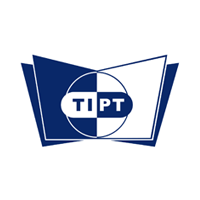
Pre-filled syringes serve a wide range of functions. The benefits of pre-filling these devices include accurate dosage and a simpler way of administering medication. In the case of self-administered treatments, patient compliance can increase when the process is simpler and easier to follow. Patients may require pre-filled syringes for insulin injections, epinephrine or other drugs and treatments.
Drawing medication into a syringe from a vial can sometimes lead to errors like accidental needle sticks and inaccurate dosage amounts. Pre-filled syringes reduce these risks and also make widespread use of vaccines more feasible. Furthermore, for the pre-filling process to be safe, it’s necessary to reduce the risk of contamination. Robotic fillers can help reduce the risk of human error that can cause contamination in the first place. Read for more about the future of robotic syringes!
Advantages of Using Robotics in the Pharmaceutical Industry
In pharmaceuticals, more and more automation is becoming common. Robotic devices are able to improve upon efficiency and accuracy, as well as help prevent contamination from human error. A sterile environment is made possible by robotic fillers, as environmental or human factors are removed. Robotic fillers are used on vials to provide accurate measurements in a manner that is safe and protected from contaminants.
Vision sensors on robotic systems enable inspection and serialization, in addition to the ability of robotics to very quickly produce accurate work. Drug shortages are minimized when systems run as efficiently as possible, so being able to combine automatic inspection with speedy performance is advantageous not just for pharmaceutical companies, but for populations in need of drugs.

A Partnership to Push Pharmaceutical Technology Forward
As a student in pharmaceutical research training, you may be interested in how some pharmaceutical companies are using robotic syringes in the field of pharmaceutical research. For example, Nephron Pharmaceuticals Corporation has partnered with Clemson University to enhance the process of filling syringes using robotics.
Automated syringe-filling that is developed will be used at a Nephron facility that provides sterile, pre-filled medications. This partnership benefits both parties, as Nephron’s technology will advance and students at the university will be able to gain research experience. This is just one example of how robotic syringes are creating new opportunities in pharmaceutical research and development.
Keeping Up with Demand Using Pharmaceutical Technology
Hospital demand for pre-filled syringes is also growing, with pharmaceutical technology racing to improve on current manufacturing in order to keep up. Other medical facilities also experience drug shortages that could be remedied by a more efficient system for producing pre-filled syringes.
Rising demand for pharmaceutical products comes from factors like disease and aging populations. However, the upside of this demand is that it helps drive innovation. Robotics are a case in point, as they can help speed up the production of pre-filled syringes and help meet the demand for more pharmaceutical products.

Due to the increased availability of new pharmaceutical discoveries, like robotic syringes, more patients can access medications for diverse medical needs. These advancements are promising and can contribute to less drug shortages and a safer manufacturing process going forward.
Are you interested in R&D pharmaceutical courses?
Contact TIPT for more information!
